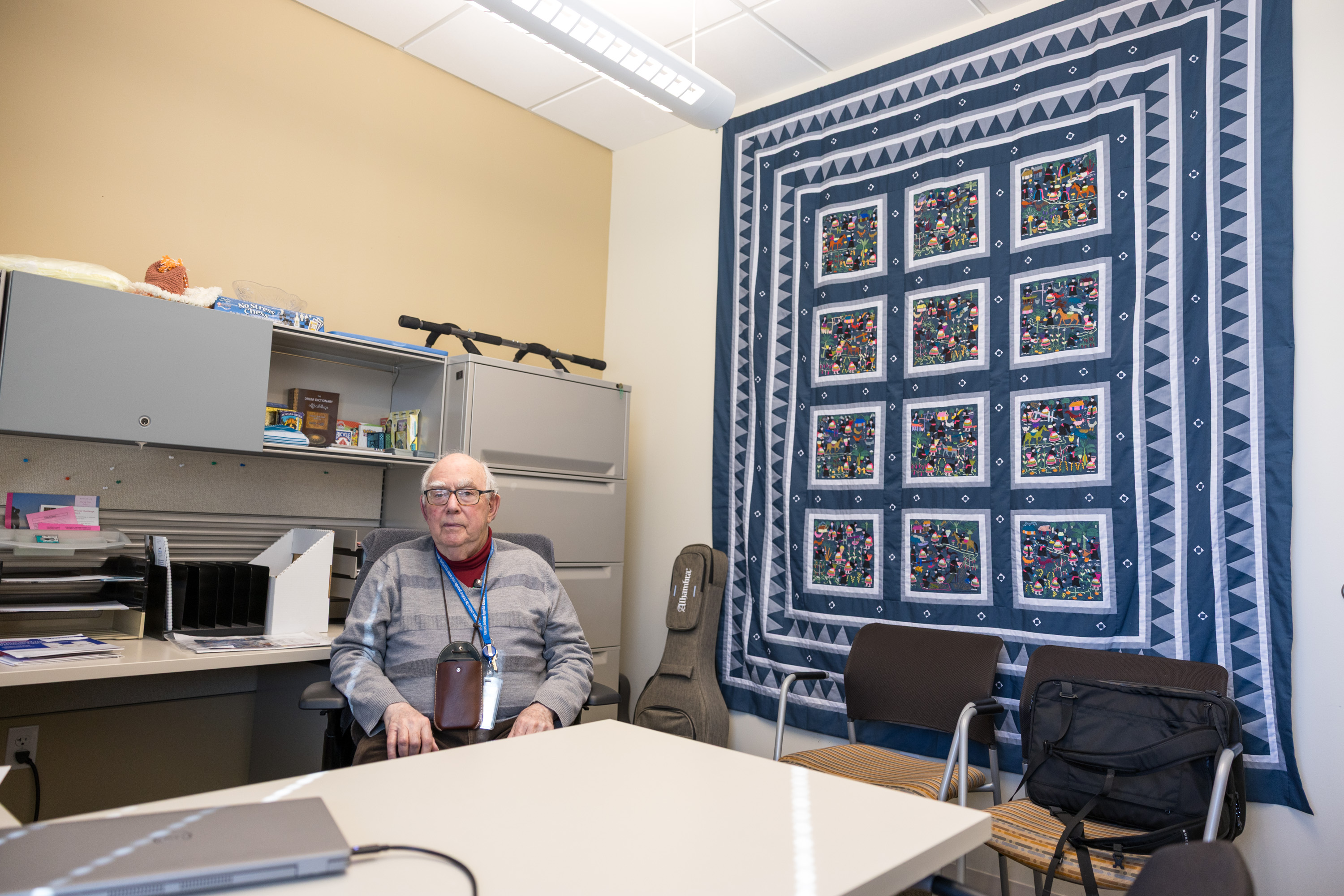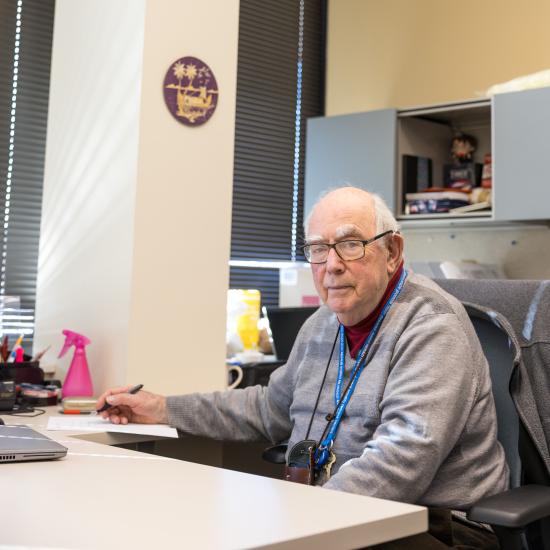"It's People, Not Just Statistics" - A Moment With Dr. Jerry Kroll
Forward written and shared by Wilder's Clinical Manager of Adult Services, Hua Xiong-Her, MS, LMFT, LICSW.
It is bittersweet news that Dr. Jerry Kroll, Psychiatrist on Wilder's ACT team, will be retiring. He has been a pillar in community psychiatry, dedicating his 60+ year career to serving marginalized populations, including minorities, immigrants and refugee communities. In addition to his 20 years of dedicated service at Wilder, he has served at the Community-University Health Care Clinic since the mid-70s and joined Metro Behavioral Health (a Somali-owned and run clinic) in 2020.
His impactful work extends beyond clinical practice. He has also collaborated with the School of Law faculty, providing psychiatric evaluations for incarcerated refugees facing deportation. As a Professor of Psychiatry Emeritus at the University of Minnesota Medical School, he has trained and shaped generations of psychiatrists and enriched the field through his research on psychiatry and multicultural populations. His calm presence, client-centered approach, and passion for advocacy have inspired us all.

Interview conducted by Wilder's Communication Manager, Matt Bauer-Yuen. Interview responses have been lightly edited for length and clarity.
What made you decide to go into psychiatry?
I grew in in Brooklyn, NY in the 50's. During that time, it was full of intellectual activity and interest, social theory. We were reading books - European books, Freudian stuff, Thomas Mann; that was part of my public high school education. All of that was bubbling around that time, so a lot of us became interested in Psychology and Psychiatry.
What was it like working with different refugee and immigrant populations?
At the Community University Health Care Clinic, we were seeing Southeast Asian refugees, and then the Somali Civil War started in 1991. Like many countries with war, it's just devastating, and the refugee populations come over really damaged.
People have different needs. Housing needs, job needs, citizenship needs. Patients would wonder why I wanted to know details such as citizenship, and I would have to go through my litany of reasons. I'd say, "I'm not from the FBI. I'm not from the military. I am your doctor." I believe in getting engaged with your patients, but not crossing boundaries.
Psychiatry is an interesting field, not as specimens, but as human beings. I remember presenting a paper once on Southeast Asian refugees, and I started crying. I said to myself, you're going to have to change fields, or just keep crying. It gets emotional because it's people, not just statistics.
What advice would you give to professionals working in psychiatry in the Twin Cities?
You have to have a good feeling for people. Respect for them. Respect for yourself. Keep your life engaged, but separate. That's a fine line. Do not be too stiff. I don't like to work out of a textbook; I'd rather stick a pin in my eye. But I think I want to be a human to a patient or to a staff member and work it out as best I can.
The work you're doing sounds emotionally taxing. Why do you still do it?
I wouldn't say it's taxing. No, it comes with the territory. And if you want to do it well, it comes with the territory. If you're going to work with people with troubles, you won't be able to work very well if the troubles don't touch you. I think emotionally, it's not just emotional engagement, it's intellectual work too. I also try and teach that you have to take care of your personal life. To make sure that your personal life is at least satisfactory enough so you don't take out your needs on your patients.
Will you miss working in Psychiatry as you retire?
I like what I do. I like the interactions. I like the intellectual back-and-forth one can have with another person, which is like trying to solve a puzzle and has practical implications, without grandstanding. I get attached to patients, and they get attached to me, and you work it out to say goodbye. That's part of life, too, right? I think it's been fun. Not perfect. I've made my mistakes. So I'm looking forward to retiring. I'll probably do some writing.
